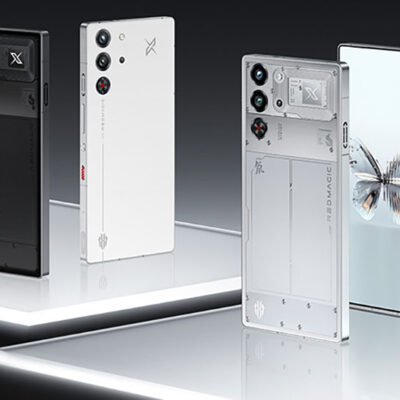In the world of audio technology, few brands stand out as prominently as Bose and Sony. Both companies have made significant strides in developing noise-canceling headphones that not only deliver exceptional sound quality but also elevate the listening experience by minimizing unwanted background noise.
If you’re in the market for a pair of headphones that promise to drown out the chaos of the outside world, you’re likely faced with the question: Bose or Sony?
In this article, we’ll dive into the features, performance, and overall user experience of these two giants, helping you make an informed decision when it comes time to ask the product that fits your needs best.
The Legacy of Bose
Founded in 1964, Bose has a long-standing reputation for producing high-quality audio equipment. Their commitment to research and development has led to pioneering innovations in the audio industry, particularly in the realm of noise cancellation.
The company’s Bose wireless headphones are often praised for their industry-leading Active Noise Cancelling (ANC) technology, which effectively blocks out ambient sounds, allowing listeners to immerse themselves in their favorite music or podcasts.
Bose headphones are designed with comfort in mind. The soft ear cushions and adjustable headbands make them suitable for long listening sessions, whether on a flight or during a long workday. The intuitive controls, including touch-sensitive buttons, allow users to manage their audio experience effortlessly.
Key Features of Bose Wireless Headphones
- Active Noise Cancellation: Bose’s noise-canceling technology uses microphones to pick up surrounding sounds and generate counteracting sound waves, effectively canceling out noise.
- Sound Quality: Known for their balanced sound profile, Bose headphones deliver crisp highs, rich mids, and deep bass, making them ideal for all music genres.
- Comfort and Design: Lightweight materials and plush ear cushions make for a comfortable fit, while the sleek design is both stylish and functional.
- Battery Life: Most Bose models offer an impressive battery life, with up to 20 hours of wireless playtime on a single charge, ensuring they last throughout the day.
- Connectivity: Bose wireless headphones feature Bluetooth connectivity, allowing seamless pairing with various devices.
The Powerhouse of Sony
On the other hand, Sony has been a formidable player in the audio industry for decades, continuously pushing the envelope with innovative technology.
Their Sony earphones are particularly noted for their excellent noise cancellation capabilities and high-resolution audio. Sony’s commitment to delivering superior sound quality has made their headphones a popular choice among audiophiles and casual listeners alike.
Sony headphones come equipped with Adaptive Sound Control, which automatically adjusts the noise-canceling settings based on your environment. This feature enhances the user experience by ensuring that the headphones provide optimal performance, whether you’re commuting, exercising, or relaxing at home.
Key Features of Sony Earphones
- Adaptive Sound Control: This feature analyzes your activity and adjusts noise cancellation settings accordingly, ensuring the best listening experience.
- Hi-Res Audio: Sony headphones support high-resolution audio formats, delivering detailed sound that brings out the nuances in your favorite tracks.
- Long Battery Life: Similar to Bose, many Sony models boast impressive battery life, offering up to 30 hours of playback time.
- Customization: The Sony Headphones Connect app allows users to customize sound settings, including an equalizer to tailor the audio to their preferences.
- Voice Assistant Integration: Many Sony headphones are compatible with voice assistants, making it easy to control music and manage tasks hands-free.
Comparing Noise Cancellation Performance
When it comes to noise cancellation, both Bose and Sony have crafted technologies that excel in their own right. Bose is often celebrated for its consistent performance in a variety of environments, effectively minimizing both constant and dynamic sounds, such as engine noise and chatter. Users often rave about how the Bose wireless headphones provide a serene listening experience, especially during travel.
In contrast, Sony’s Adaptive Sound Control feature adds a layer of versatility, allowing users to switch between noise cancellation levels based on their current surroundings. This adaptability makes Sony earphones an excellent choice for those who frequently transition between noisy and quiet environments.
Both brands perform exceptionally well in blocking out noise, but the choice often comes down to personal preference regarding how much control users want over their listening experience.
Sound Quality: The Heart of the Experience
Sound quality is another crucial aspect to consider. Bose headphones typically produce a warm and balanced sound signature, making them appealing for a wide range of music genres. The clarity of vocals and the depth of bass in Bose headphones create a rich listening experience that many users appreciate.
On the other hand, Sony earphones are known for their dynamic sound and detailed audio reproduction. The ability to support high-resolution audio files allows Sony headphones to deliver a listening experience that reveals the intricate details of your favorite tracks. Users who prioritize audio fidelity and enjoy high-definition music formats may find Sony’s offering more aligned with their preferences.
Comfort and Design: All-Day Wearability
Comfort is paramount, especially for those who wear headphones for extended periods. Bose headphones excel in this area, featuring plush ear cups and a lightweight design that reduces fatigue. Whether you’re on a long flight or working at your desk, Bose ensures that comfort is never compromised.
Sony also pays attention to comfort, with many of their models designed to fit snugly without causing discomfort over time. However, the overall fit may vary from model to model, so it’s worth trying them on to find the best fit for your ears and head shape.
Battery Life and Connectivity
Battery life is another critical factor to consider when choosing between Bose and Sony. While both brands offer impressive battery performance, Sony often takes the lead with its longer playtime.
For instance, some Sony models can last up to 30 hours, making them ideal for long trips or all-day use. Meanwhile, Bose models typically offer around 20 hours of playback, which is still commendable but may require more frequent charging.
In terms of connectivity, both brands provide seamless Bluetooth pairing and support for various codecs, ensuring a stable and high-quality wireless experience. The integration of voice assistants in Sony headphones adds an extra layer of convenience for users who enjoy hands-free operation.
Price Point: Finding Your Fit
When it comes to price, both Bose and Sony offer a range of models to fit different budgets. Bose headphones often carry a premium price tag, reflecting their brand reputation and quality. However, they frequently go on sale, providing opportunities to snag a great deal.
Sony’s lineup includes more budget-friendly options, allowing users to access high-quality noise-canceling technology without breaking the bank. Whether you’re looking for an entry-level pair or a top-tier model, both brands provide options that cater to a variety of budgets.
Final Thoughts: Which One is Right for You?
Ultimately, the choice between Bose and Sony headphones comes down to personal preference and specific use cases. If comfort and consistent noise cancellation in various environments are your top priorities, Bose wireless headphones might be the best fit. On the other hand, if you value adaptive features and high-resolution audio, Sony earphones may be the way to go.
Before making a decision, it’s advisable to test both brands to determine which one feels and sounds right for you. Whichever option you choose, both Bose and Sony have established themselves as kings of noise cancellation, providing users with an unparalleled listening experience that transforms how you enjoy audio.
So, the next time you ask the product about noise-canceling headphones, remember that either choice will lead you to a quality investment in your audio journey.




